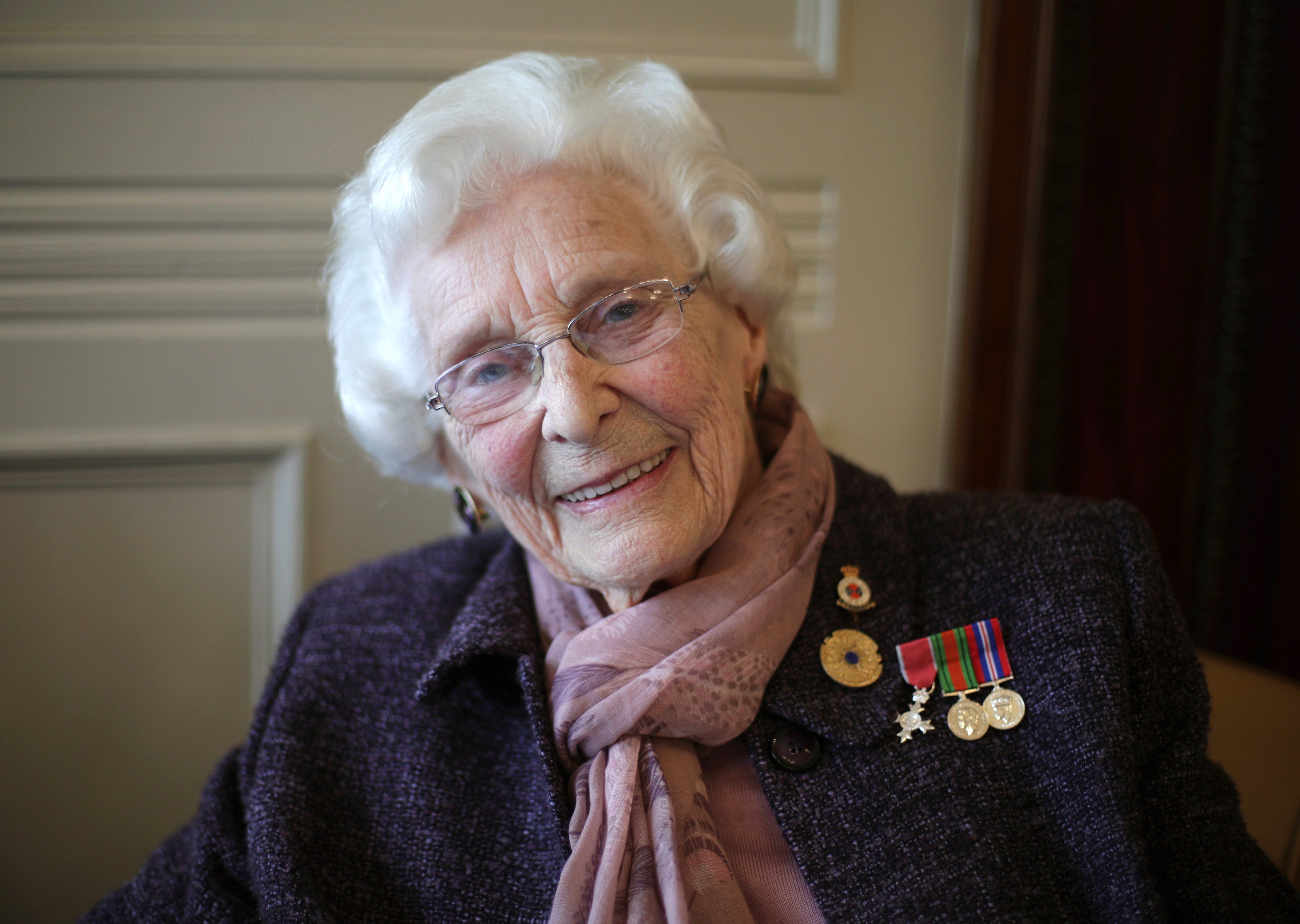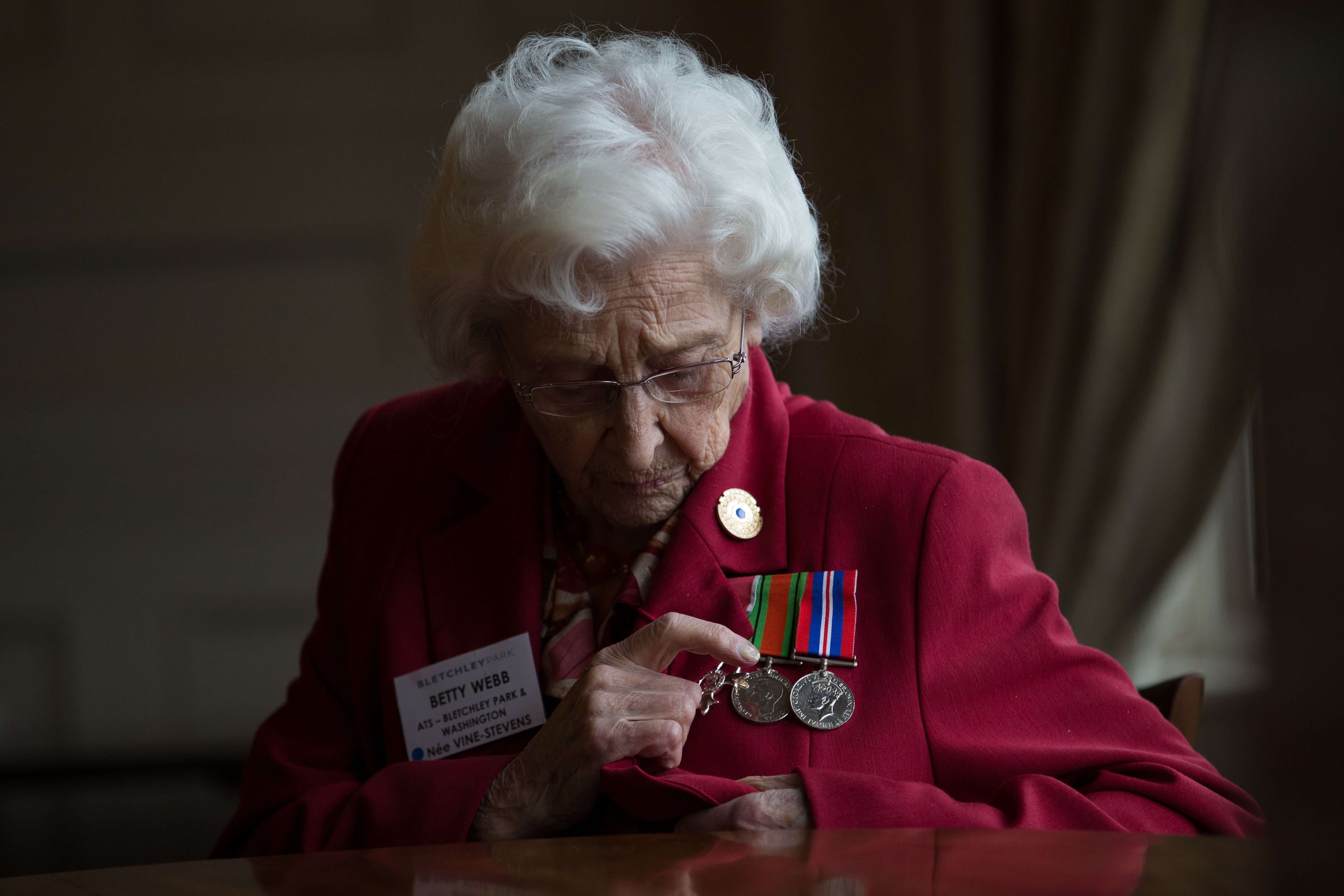
Charlotte "Betty" Webb, a Bletchley Park codebreaker who served as an inspiration to generations of women in the Army, has died at 101.
The Women's Royal Army Corps Association said she died on Monday.
From 1941 to 1945, Ms Webb played a crucial role at Bletchley Park as a member of the Auxiliary Territorial Service (ATS). Her work involved indexing German messages and paraphrasing Japanese signals, contributing significantly to the Allied war effort.
Her expertise extended beyond Bletchley Park. During the Pacific War, she continued her vital work at The Pentagon, paraphrasing Japanese messages.
In recognition of her exceptional service in the ATS, Mrs. Webb was awarded France's highest distinction, the Legion d'Honneur, in 2021.
Initially, Ms Webb's role at Bletchley Park was as a secretary, but her skills and abilities soon led her to a more demanding and impactful role in F block, where she focused on paraphrasing.
As a German speaker, Ms Webb's responsibility involved taking decoded messages and restructuring the unencrypted text before sending it to Allied commanders. This meticulous process ensured that even if intercepted by the enemy, the messages would not reveal that Allied forces were deciphering their transmissions.

Ms Webb was 18 and studying at domestic science college near Shrewsbury in Shropshire when she and several others on her course decided “we ought to be serving our country rather than just making sausage rolls”.
She started volunteering for the ATS in 1941, according to an interview she gave as part of the Bletchley Park oral history project in February 2012.
She completed her basic training in Wrexham at the Royal Welch Fusiliers’ barracks before being taken to London for an interview and then immediately to Bletchley Park.
Ms Webb remembered registering messages immediately without any training. She said they were told to just “get on with it”, before being taken into a separate room occupied by a “rather severe” Army captain and given the Official Secrets Act to read.
About 10,000 messages came into Bletchley Park each day, all requiring sorting and storing correctly.
Ms Webb was then moved into the Japanese section, paraphrasing the translated Japanese messages, and was sent to Washington in May 1945 to assist with the Pacific War effort.
Mrs Webb never told anyone about her work and it remained a secret until 1975. She was never able to tell her parents as they had already died.

From then, she gave talks to schools and other organisations and wrote a book about her experiences.
For services to remembering and promoting the work of Bletchley Park, she was made an MBE in 2015.
Ms Webb was also invited to King Charles’s coronation in 2023, for which she had a front row seat, which she told the BBC was “magnificent”.
In a tribute, the Women’s Royal Army Corps Association said: “Betty inspired women in the Army for decades and we will continue to take pride in her service during WWII and beyond, and as a champion of female veterans.”
In a statement, Bletchley Park said her contributions to the estate’s work during World War II and to ensuring its legacy will “never be forgotten”.
It said: “Betty was not only a member of the incredible team at Bletchley Park during World War II, but she also dedicated much of her life to raising the profile of Bletchley Park in more recent years.
“Her tireless efforts in bringing the history of Bletchley Park to a wider audience, through sharing the stories of those who worked here, helped ensure that the vital role of Bletchley Park during World War II, and its impact on the conflict, was recognised.
“Betty’s passion for preserving the history and legacy of Bletchley Park has undoubtedly inspired many people to engage with the story and visit the site. Betty’s impact at Bletchley Park will be remembered for many years to come.”







